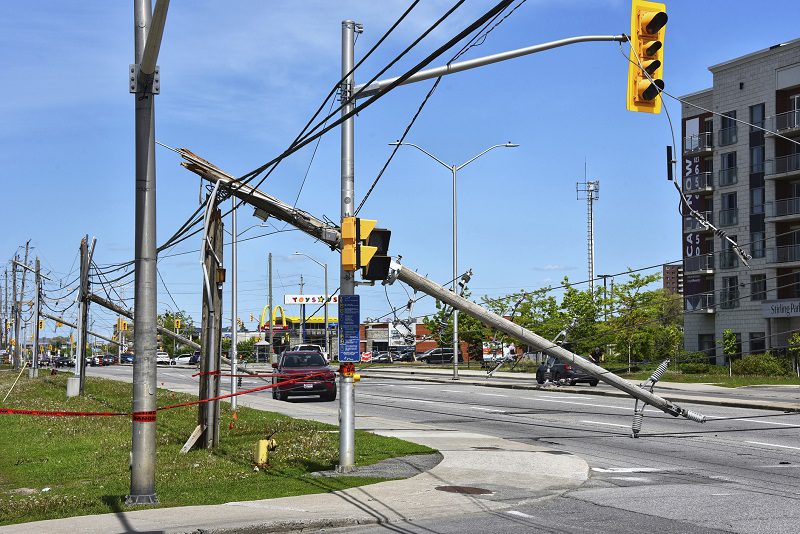What the derecho in May cost P&C insurers

Central Canada’s derecho in May caused more than $875 million in insured damage, making it the sixth-largest natural catastrophe loss in Canadian history.
“Damage in Ontario is estimated to be over $720 million, while the storm caused an estimated $155 million of damage in Quebec,” the Insurance Bureau of Canada notes in a release, citing information from Catastrophe Indices and Quantification Inc. (CatIQ). “The derecho caused widespread damage to property, extensive power outages and sadly, loss of life.”
Most of the damage was due to wind, not water, the insurance company association reports.
“The powerful storm…was far-reaching and impacted a densely populated corridor across southern Ontario and into Quebec,” IBC notes. “Close to 30,000 homes in Ontario and Quebec were without power for more than a week after the storm. Although hail and torrential rain accompanied the storm, wind caused most of the property damage.”
Wind, as IBC observes, is typically covered under a home insurance policy.
Within Central Canada, only Toronto flooding in 2013 (causing $1 billion of insured damage) and the 1998 ice storm in Ontario and Quebec ($2.3 billion insured damaged) rank ahead of the damage caused by the derecho, which reportedly killed 10 people.
Fort McMurray, Alta.’s wildfire event in 2016 still ranks as Canada’s largest insured damage loss in history, costing the Canadian P&C industry $4 billion.
Nine out of 10 of Canada’s Top 10 NatCat events have happened since 2000, based on IBC data supplied by CatIQ.
“The derecho event…is a sobering reminder of the increasing risk climate change poses to communities across Canada,” IBC comments in a release. “IBC continues to advocate for a National Adaptation Strategy that will result in tangible short-term measures that improve Canada’s climate defence.
“Governments at all levels must act with urgency to prioritize investments that reduce the impact of these severe weather events on families and communities.”
Feature photo courtesy of iStock.com/PaulMcKinnon



